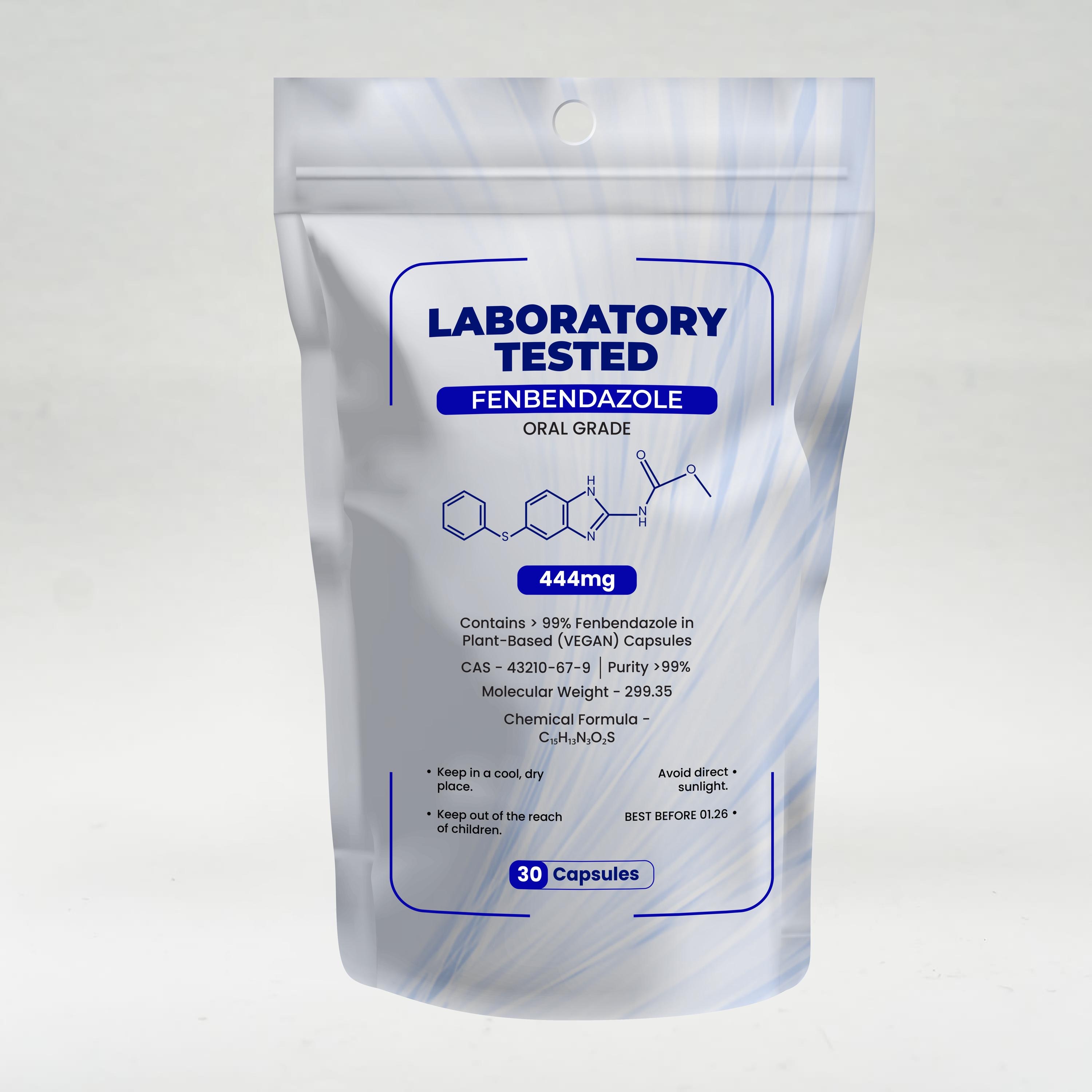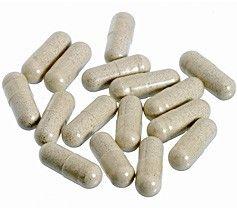222 mg fenbendazole: A Quick Guide for Pet Owners
Wiki Article
Checking out the Mechanisms Behind Fenbendazole and Its Influence On Animal Health
Fenbendazole is an extensively made use of anthelmintic understood for its performance against numerous parasites. Its key mechanism entails the inhibition of microtubule development, which disrupts important processes in these virus. Past its antiparasitic homes, fenbendazole likewise shows up to boost immune feedbacks and possesses anti-inflammatory advantages. Comprehending these multifaceted impacts might disclose new applications for pet health. Inquiries continue to be regarding its complete possibility and safety profile.The Pharmacokinetics of Fenbendazole
The pharmacokinetics of fenbendazole, an extensively used anthelmintic in veterinary medication, entails the research of its absorption, distribution, metabolic process, and discharging within pet systems. After administration, fenbendazole is quickly soaked up from the gastrointestinal tract, with peak plasma concentrations happening within hours. Its circulation is affected by factors such as tissue binding and lipid solubility, enabling it to permeate numerous cells effectively. The medication goes through comprehensive metabolic rate primarily in the liver, where it is exchanged active and non-active metabolites. These metabolites contribute in the medicine's general efficiency and security account. Excretion happens largely with feces, with a smaller sized proportion gotten rid of using urine. The half-life of fenbendazole differs amongst types, which impacts application routines. Understanding these pharmacokinetic buildings is necessary for optimizing its restorative usage and making certain efficient parasite control in vet practices.Systems of Action Versus Parasites
Fenbendazole applies its antiparasitic results mainly through the restraint of microtubule formation in parasites. This disturbance influences their structural integrity and mobile functions, resulting in damaged basal metabolism. As a result, the medication effectively jeopardizes the survival and recreation of different parasitical organisms.Inhibition of Microtubule Development
Inhibition of microtubule formation stands for an important mechanism where certain anthelmintic agents, including fenbendazole, exert their impacts on parasites. Fenbendazole binds to tubulin, a protein that forms microtubules, disrupting the polymerization process needed for microtubule setting up. This disruption hinders crucial cellular functions, including mitosis, intracellular transportation, and architectural integrity. As microtubules play an important duty in maintaining the shape and feature of parasitic cells, their inhibition leads to cell cycle arrest and eventual fatality of the bloodsucker. This system is specifically efficient versus nematodes, as their reliance on microtubules for wheelchair and nutrient absorption makes them susceptible to fenbendazole. The inhibition of microtubule development is a crucial element of fenbendazole's therapeutic effectiveness in vet medicine.Disturbance of Power Metabolism
Interrupting energy metabolic rate is another vital system whereby fenbendazole targets parasitical organisms. This anthelmintic changes the power production pathways within parasites, primarily influencing their capability to create adenosine triphosphate (ATP) By hindering sugar uptake and disrupting mitochondrial function, fenbendazole limitations the energy resources necessary for the survival and recreation of these microorganisms. As an outcome, bloodsuckers become increasingly susceptible to environmental anxieties and immune feedbacks. The disturbance in power metabolic process not just influences the bloodsuckers straight however likewise lowers their ability to absorb nutrients, even more hindering their growth - 222 mg. On the whole, the disturbance of basal metabolism stands for an essential aspect of fenbendazole's efficacy versus different parasitical infections, contributing greatly to boosted pet health outcomesPossible Negative Effects and Safety Account
The prospective side effects and safety and security profile of fenbendazole warrant careful factor to consider, especially in vet applications. While typically concerned as secure, some animals might experience negative reactions, including gastrointestinal disturbances such as vomiting and looseness of the bowels. Additionally, neurological signs and symptoms, although unusual, have actually been reported in sensitive individuals, highlighting the requirement for surveillance during treatment.
Fenbendazole's security in various types, consisting of canines and felines, has actually been recorded, but dosage and duration of therapy should be thoroughly managed to minimize threats. Expectant or lactating animals may likewise call for unique attention, as the effects on developing unborn children or nursing offspring are not totally recognized.
Regular vet assessments can assist minimize potential side impacts and assure the medicine is administered appropriately. While fenbendazole is an effective anthelmintic agent, alertness concerning its side results is crucial for keeping animal health.
Fenbendazole's Influence on Immune Feature
Fenbendazole has actually been noted for its prospective to modulate immune system feedbacks in pets. Its anti-inflammatory homes may add to enhanced immune feature, supplying a dual advantage in handling health (222 mg). Recognizing these impacts is important for reviewing fenbendazole's function in veterinary medicationImmune System Inflection

Anti-inflammatory Features
Anti-inflammatory results stand for a considerable facet of fenbendazole's influence on immune function. Research indicates that fenbendazole may decrease the manufacturing of pro-inflammatory cytokines, which are essential in moderating inflammatory actions. By regulating these cytokines, fenbendazole can possibly relieve inflammation-related problems in pets. This anti-inflammatory activity not just aids in handling signs connected with different diseases but also enhances total body immune system effectiveness. Furthermore, its ability to promote a well balanced immune action assists avoid excessive inflammatory damages, which can cause chronic health concerns. Fenbendazole's function in inflammation monitoring highlights its significance in vet medicine, providing a twin benefit of antiparasitic action and immune system assistance for pet health and wellness.Applications Beyond Traditional Parasitical Infections
While mainly recognized for its performance against numerous parasitic infections, fenbendazole has amassed attention for possible applications past this standard scope. Current research studies recommend that fenbendazole might have beneficial results on cellular health and immune action, making it a fascinating prospect for handling other health problems in pets. Its reported anti-inflammatory residential properties might offer alleviation for animals experiencing from persistent inflammatory diseases. Furthermore, some research read this suggests that fenbendazole could contribute in sustaining the overall wellness of pets by enhancing vitamins and mineral absorption and stomach health and wellness. Furthermore, its potential as a complement therapy in cancer cells treatment has actually sparked passion, as preliminary findings recommend it could inhibit tumor cell growth in certain contexts. These varied applications highlight fenbendazole's adaptability, urging more exploration into its diverse advantages for animal health and wellness beyond its standard usage as a deworming agent.Future Research Directions and Ramifications for Pet Health And Wellness
The exploration of fenbendazole's prospective applications has opened up brand-new avenues for research study targeted at boosting animal health and wellness. Future research studies might concentrate on its efficiency against a wider series of pathogens, including microorganisms and infections, therefore increasing its function in veterinary medicine. The implications of fenbendazole's devices, such as its effect on immune inflection, warrant additionally examination to comprehend exactly how it can reinforce general health and wellness in different species.Additionally, research might discover perfect dosages and formulations to make best use of efficiency while reducing potential side effects. Exploring fenbendazole's synergistic impacts with various other medicines could result in more effective treatment methods. Longitudinal studies assessing lasting outcomes in pets treated with fenbendazole could supply beneficial understandings into its safety and security and efficiency. In general, the ongoing exploration of fenbendazole supplies encouraging possibility to improve animal health, requiring a collaborative approach among researchers, veterinarians, and pharmaceutical designers to promote improvements around.
Often Asked Inquiries
Can Fenbendazole Be Utilized in Animals for Bloodsucker Avoidance?
The inquiry of whether fenbendazole can be used in livestock for bloodsucker prevention matters, as manufacturers seek effective therapies (fenbendazole 444). Research indicates it may provide benefits, yet proper guidelines and vet guidance are crucial for safe usageWhat Is the Recommended Dosage of Fenbendazole for Various Animals?

Exist Any Understood Drug Communications With Fenbendazole?
Existing anchor knowledge suggests that fenbendazole might interact with specific medications, possibly affecting their effectiveness or metabolic process. Vet experts suggest talking to a veterinarian to assess specific pet situations and figure out any type of possible communications prior to administration.How Does Fenbendazole Compare to Other Antiparasitic Drugs?
Fenbendazole is usually contrasted to various other antiparasitic medications based on efficiency, range of activity, and safety profiles. It is preferred for its performance against a broad variety of bloodsuckers while normally displaying very little negative effects in pets.Is Fenbendazole Effective Against Viral or Bacterial Infections in Animals?
The effectiveness of fenbendazole versus viral or bacterial infections in animals remains unverified. Research study mainly focuses on its antiparasitic residential or commercial properties, with limited proof sustaining any type of duty in dealing with non-parasitic infections in veterinary medication.Report this wiki page